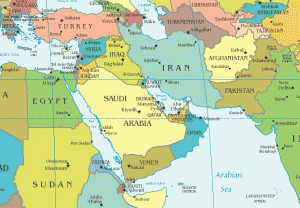With the annual Hajj pilgrimage to Mecca, Saudi Arabia, among the largest mass gatherings in the world, commencing the first week of October, the World Health Organization (WHO) published a short 1:45 minute video with simple preventive measures to help pilgrims avoid the Middle East Respiratory Syndrome coronavirus (MERS-CoV).

Hajj draws about 3 million Muslims from around the world. This year, Hajj will take place from approximately October 2–7, 2014. Umrah is a similar pilgrimage that can be undertaken at any time of the year.
Because of the crowds, mass gatherings such as Hajj and Umrah are associated with unique health risks.
MERS is viral respiratory illness first reported in Saudi Arabia in 2012. It is caused by a coronavirus called MERS-CoV. Most people who have been confirmed to have MERS-CoV infection developed severe acute respiratory illness. They had fever, cough, and shortness of breath. About 30% of people confirmed to have MERS-CoV infection have died.
To date, there has been 749 MERS cases reported in Saudi Arabia, including 316 deaths.

